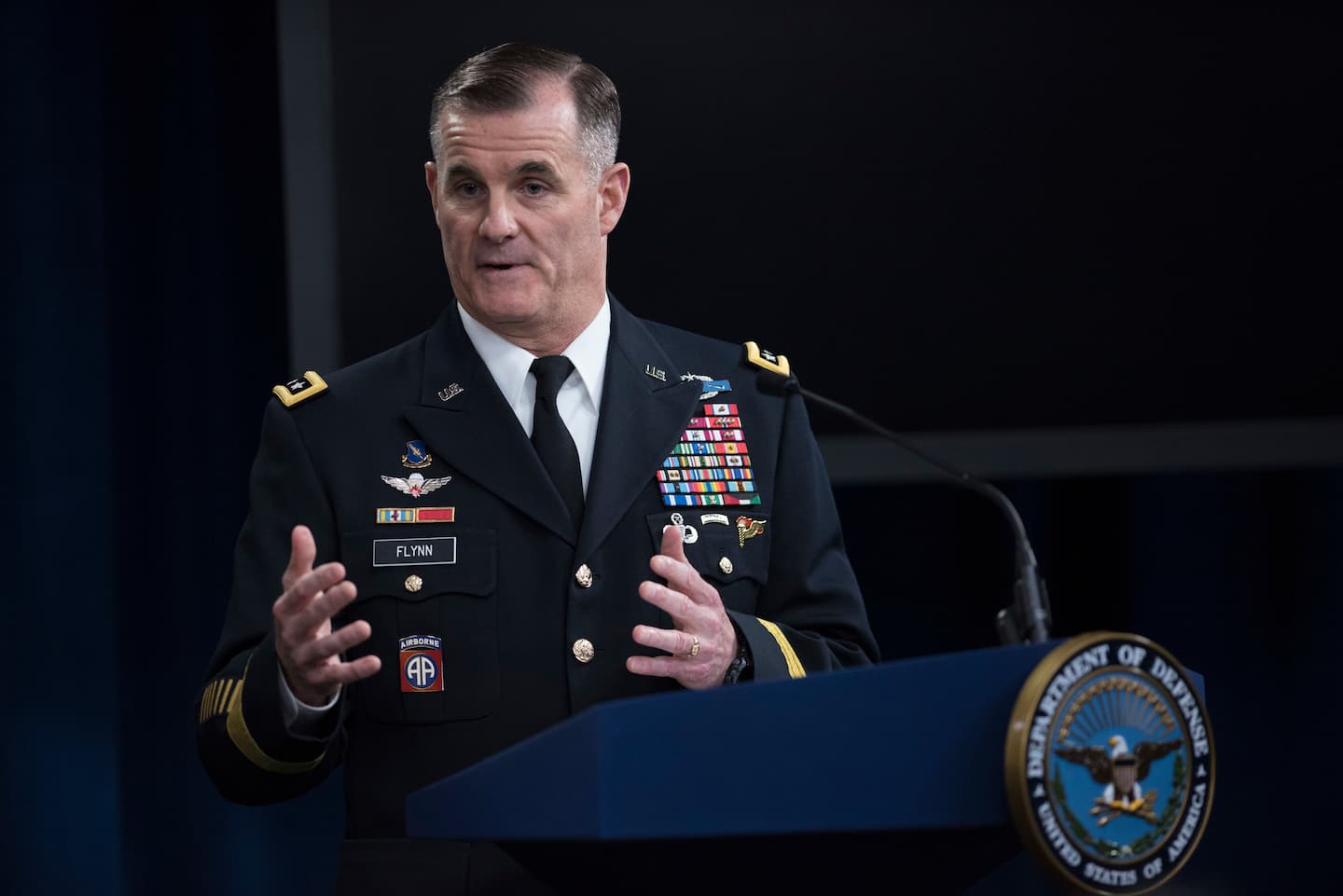The Army inexplicably creates a heap of suspicion in handling of Michael Flynn’s brother

Flynn’s role is at issue because of his brother, Michael Flynn, a general and former White House national security adviser who was convicted of lying to investigators during the Russia investigation. Michael Flynn has most recently been among the highest-profile supporters of the idea that then-President Donald Trump should have declared martial law in an attempt to overturn the results of the 2020 election. He is also a prominent supporter of the QAnon conspiracy theory that coursed through the attempted insurrection. And the day before, he spoke to supporters near the White House, telling them, “This country is awake tomorrow,” and that “we the people are going to be here, and we want you to know that we will not stand for a lie.”
But there has been no reason to think that Michael Flynn’s beliefs had any bearing on the actions of his brother. And indeed, Charles Flynn’s involvement in the meeting made a lot of sense, given his role as the Army’s deputy chief of staff for operations, plans and training. Charles Flynn isn’t in the chain of command, but this is something you’d expect him to take part in.
But for some reason, the Army decided to falsely deny and otherwise obfuscate that fact. And the timeline reinforces just how poorly conceived and handled the entire situation was.
As The Post’s story notes, then-Army Secretary Ryan McCarthy talked around Charles Flynn’s involvement during a Jan. 12 interview with The Post. He said that he hadn’t been on that particular call, suggesting that he didn’t know whether Flynn was.
But both before and after that interview, The Post’s reporters had been asking the Army about it, and they received more direct denials. The same day, one anonymous official even said in all capital letters, “HE WAS NOT IN ANY OF THE MEETINGS!” — an exceedingly broad denial.
But those inquires weren’t the only ones military leaders were receiving, and other evidence suggests that McCarthy’s response was the company line. The day before McCarthy’s interview, in fact, CNN’s Jake Tapper asked the chief of the National Guard Bureau, Gen. Daniel Hokanson, about Flynn, and Hokanson echoed McCarthy’s response:
TAPPER: Let me ask you a question: Was General Charles Flynn on that call, that 2:26 [p.m.] call?
HOKANSON: Jake, I couldn’t answer that question. I was not on that call.
In other words, this was a question that was out there — something top officials were being asked about not just behind closed doors, but on national TV. Getting a handle on the details and being transparent would have seemed important.
The most charitable explanation is that this was the result of confusion. As The Post’s story notes, it wasn’t clear at times who on the call was speaking. Charles Flynn also said he was late to join the meeting where the call was being held and that he left early, anticipating that he was about to be tasked with executing some orders. That wouldn’t explain why the anonymous denials were so explicit and broad, but again, it’s the most charitable reading.
But the Army has compounded matters by both taking so long to correct the record and by failing to account for exactly how this happened. The admission comes more than a week after both Hokanson and McCarthy punted and after the anonymous denials. What’s more, the Army isn’t explaining itself. Asked how this happened, it responded, “Thank you for the opportunity to comment, however we have nothing further to add.”
One anonymous official, though, has indicated that this is precisely what it looks like: a coverup. The official told The Post that there was indeed concern about the possible political fallout if Flynn’s role became public.
The thing is, even if this were to come out, it probably would have been a pretty small matter. It might have seeded some more conspiratorial thinking about why the National Guard wasn’t deployed sooner, sure, but Charles Flynn’s involvement would have been very easy to explain, on account of his job. And again, there is no reason to ascribe his brother’s beliefs to his work, and plenty of reason to believe that he doesn’t share these views, given how extreme they are.
By trying to hide this fact and avoid even the discussion, though, they’ve all created much more valid suspicion — not about Flynn specifically, necessarily, but about their general honesty regarding the events of Jan. 6. And all of it is surely something many of them will be forced to account for under oath, as Congress prepares to hold hearings on the Capitol siege in the weeks and months ahead.






